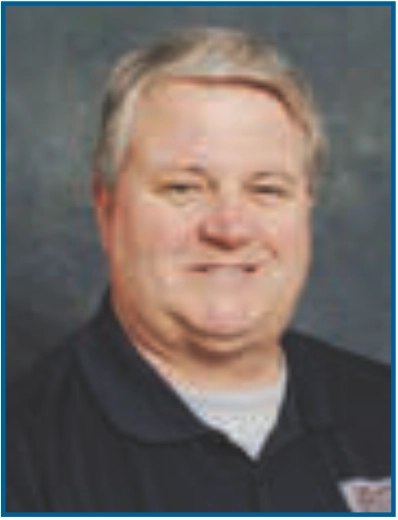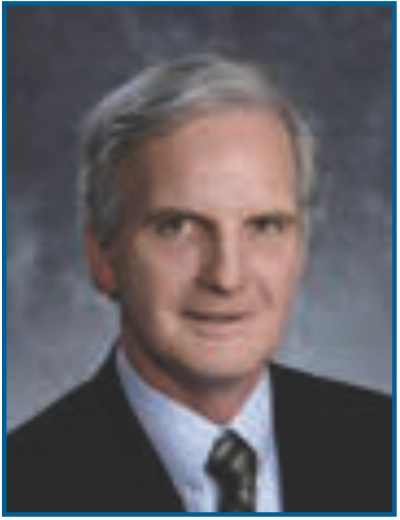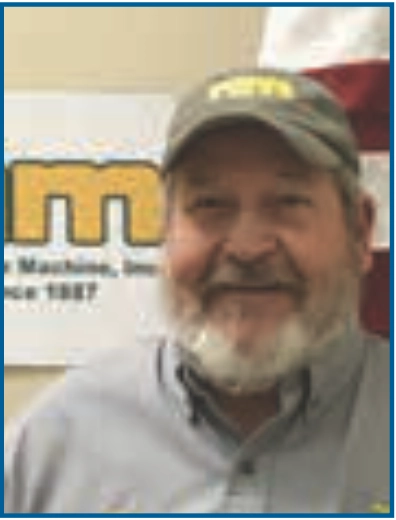By Kerri Souilliard, on July 9, 2018, The NEBB Professional – Q3 2018 Edition
In 2008, NEBB changed its certification language from “Qualified Supervisors” to “Certified Professional” because after much thought and consideration, the Board decided that words matter. The word “professional” accurately described what an owner or project team receives when hiring a NEBB Certified Professional (CP): professionals with a unique body of knowledge and skill sets that, as a professional member of the construction team, add substantial value to the delivery of constructed facilities.

For NEBB and its certified firms, it is the behavior that the word “professional” implies that causes it to immediately resonate with just construction industry partners. It’s one thing to carry a title that defines you as a “professional,” but a whole new world to participate as a true professional with clients, partners, and peers. “Your title will get you in the door, but it’s your performance that will keep you there,” says Steve Smith, CP and Sales Director/Special Project Manager of Pacific Test & Balance, Inc.

Luis Chinchilla, CP and Director of OPIA Operaciones de Ingeniería de Avanzada de Centroamérica, a specialized engineering services firm in San Jose, Costa Rica agrees. “We need to continually educate our market segment and our customers. They may not all know exactly what NEBB stands for, but they see it as a standard of excellence. When we say we are sending out a Certified Professional, they know they are in good hands because it conveys a certain level of quality and expertise.”
Get Involved Early for Better End Results
In many cases, the key to a NEBB firm’s and professional’s success on a project begins with involvement with the design and construction team as early as possible. This allows the NEBB CP to provide guidance during the early project stages to ensure all components of a system will work together properly and remain easily accessible once installed. Yet often, that is easier said than done.
“Construction has gotten faster over the years. Thinking with the end in mind can help, but not many people do it. Everyone is thinking about the budget, timeframe, contractor, but no one thinks about the last day and how to deal with the inspection,” states Smith. Looking at the big picture from the beginning is arguably the primary reason NEBB professionals need to get involved early on and offer their professional expertise in delivering and sustaining building performance after turnover.


“As practitioners of the art and science of building performance delivery, NEBB has for too long been perceived as “contractors” in the professional world. While many wear the contractor label with deserved pride, being contractors can cause NEBB professionals to be reluctant voices for common sense construction, start up, and operation,” mentions NV5 Vice President Jerry Bauers, CP. “Our relationship with the Engineer of Record has historically been a subordinate one, but engineers and owners benefit from a strong, professional voice in commissioning, testing, adjusting, balancing, cleanroom and other certifications to help guide the construction, start-up and turn over process to a successful end, on time and within budget,” Bauers continues.

It takes consistently professional behavior-and more often than not, proven experience—to be given a seat at the table early on in a project’s lifecycle. For those that get involved with the project team in the beginning stages, rather than waiting for the “invitation,” the end result is typically better for all parties involved. Nashville Machine Test & Balance Certified Professional William Bailey sums it up best with, “We’re saving everyone money in the long-term.”

“As a PE and a NEBB CP, I like to think I offer a unique perspective. I never overstep my bounds in regard to the engineers, but I like to be involved in the design reviews. It happens about half the time-usually with owner direct work to ensure the design meets their requirements,” explains TAB Engineer Rich Jarvis, PE and NEBB CP at Proficient TAB.
“The President and VP of our company are involved in a lot of the estimating that’s done early on for our bigger projects, so they get me involved as soon as they can. We like to look at it as a team to do what we need to do to be as cost-effective as possible for the owner,” says Bailey. “I do a lot of owner training, which helps develop relationships, too.”
“Answering questions about construction sequencing that allows for phased turnover, installation strategies that permit both initial testing and long-term maintenance, practical equipment sizing selection and maintenance features, these are the unique province of the professionals who deal with the practical implications of construction coordination, access and spare parts daily,” Bauers explains. “Many NEBB professionals have preferred provider relationships with owners. These relationships are rooted in the owner’s confidence in [those] professionals to “make stuff work.” Owners see [NEBB CPs] as value-added members of the construction team, valuing [their] practical knowledge of both construction and operational strategies.”
If You Call Yourself a Pro, Act Like One
While early involvement irrefutably leads to successful results, what kind of behavior does it take to be viewed as a true professional and gain the opportunity to assert your expertise throughout the entire project? Professionalism goes beyond stellar project performance. While achieving a professional partnership is rooted in experience and performance excellence, the four Cs-confidence, communication, collaboration, and continuous learning— are necessary to demonstrate your professional expertise.
Confidence is knowing that your experience and capabilities will help produce a successful outcome. It does not involve ego; it is about adding value in schedule, sequence and performance delivery discussions. The first step toward confidence is recognizing that you are a professional with a unique body of knowledge that can be relied upon to support the successful delivery of the project. The second – and arguably most important – element is preparation. It is essential that, as a NEBB CP, you think through the construction and delivery of the operating systems so that the experience provides a valuable voice in early identification of obstacles and recommendations for avoiding them.
True confidence allows a professional to share an expert opinion, while respecting the opinion of others. “Show respect for fellow team members – engineers, architects, installation contractors and vendors – and acknowledge that each member of the team has their unique body of knowledge that will add to the quality of the final result,” states Bauers.

“Treat people fairly and reasonably. Don’t ever let things become an ego war. Two wrongs don’t ever make a right. You have to meet people in the middle,” says CEO of Gaghan Mechanical Kevin Gaghan, CP. “It’s all about how you present yourself. Respect and listen to what they have to say.”
Communication not only helps keep all parties informed, but also leads to improved trust and long-lasting relationships. Essential for successful project outcomes, effective communication is a key component of memorable customer service that will turn today’s project into a repeat customer.
“Think of when your kids first learned to talk—the ability to communicate completely changes the relationship you share. You no longer have to guess what the other person is thinking or feeling, or where they stand because they can tell you. Communication becomes the foundation of the relationship,” Chinchilla explains.
“Would you rather hire the top technician that arrives looking unprofessional and leaves without saying a word, or a pretty good tech that takes the time to explain what he did? Our role is really a blend of technical skills and customer service-being personable, looking like a professional, explaining what we have done, and addressing customer questions or concerns,” says Smith.
Advocating a professional communication style, Bauers focuses on five critical elements for effectively conveying any message:
- Fact-based communication. A NEBB professional’s training provides the skills necessary to make rational arguments that support their point of view, while also recognizing the challenges and demands of their fellow team members.
- Two-way Communication. The best strategy for communicating with other team members is to first listen. Respect teammates by letting them know you hear their concerns and remain approachable so they continue to deliver pertinent information.
- Focus. Remaining calm is not always easy, but necessary to stay focused. A professional communication style requires level-headedness, focusing on the objective, and remembering that there are many means to an end.
- Professionalism over perfection. Sometimes, you can do everything right and it still does not work out in your favor. There may be circumstances you are unaware of driving decisions-so, allow for that. There is no perfect project, but as a professional, you can strive to make each project you work on as good as it can be.
- Documentation. Take good notes during important conversations and follow up with emails to help assure all parties hear the same thing. This may also allow other team members to save face in public meetings, while adapting to the good ideas and recommendations that you provide. Winning is a good project that everyone benefits from – not victories over others in the process.
Jarvis goes a step further, realizing a job is not really done even once it is on paper. “Call the maintenance team, ask how things are going. If there are problems, go back and fix them. Active listening goes a long way.”
Collaboration allows multiple parties to work together to achieve better end results, while providing the potential to mitigate issues before they arise.
“One of the hallmarks of a professional is the discipline to work collaboratively with a team of professionals to achieve a superior end,” states Bauers.
As an installer, the team at Gaghan Mechanical uses their NEBB knowledge to make it easier for NEBB certified TAB firms that may not have had the privilege of being involved early on. That way, all they have to do is come in and do the balancing.
Bailey and his team at Nashville Machine have another unique way of thinking collaboratively and aiming to assist other NEBB certified firms—before they’re even on site. “Sometimes, we’re not even the TAB or Commissioning firm on the job. If we work through the HVAC sequence of operations before the Commissioning group comes on, it can save the owner money and heartache. We find issues with piping or supply and return duct as we do the walk-through on pre-functional checks which gives the ability to correct problems before anyone ever puts water on it.”
“Even with technology like BIM, there are few contractors that look at how to actually service or maintain or balance the systems they install. How do you balance it if it’s inaccessible? We look at that early on to streamline the process,” Gaghan continues.
“We try to catch problems before the installation because it benefits everyone. If I do find something, I’m careful not to criticize anyone. I just present the issue and solution, because if you keep pointing out problems without a solution, no one will want to talk to you. But if you have a solution, you’re a problem solver,” states Bailey.
Continuous Learning means more than continued education. A true professional is always absorbing new knowledge-whether through lessons learned on past jobs, researching new industry technology, or keeping in touch with key industry contacts to stay in the know.
“NEBB has really fantastic resources for continued education and I think it’s great that the CP and CT continuing education requirements encourage us to keep learning. That’s part of the reason NEBB is synonymous with trust and confidence,” mentions Chinchilla.
“Stay on top of new technology. I see old technology coming back again, but it’s always changing. You need to read, better yourself and your understanding of the industry,” recommends Bailey after nearly four decades in the industry.
“This industry is driven by personal relationships. Unless you have personal relationships, it can be difficult to learn what is happening in the private sector. Get out there, work hard, and have face to face meetings. Listen to their problems and get back to them with how you can offer solutions. The best way to get on a job early is to learn about it at its inception,” states Jarvis.
Keeping these behaviors in mind, you can act like a professional and give appropriate meaning to your title. Professionalism cannot replace performance, but it does make a great complement to successful project outcomes. When you act like a professional and perform well, your chances of being selected for the next job increase significantly. If you call yourself a professional, live up to the expectations.
About the Author
With over a decade of omni-channel marketing experience, Kerri Souilliard leverages her extensive background in digital strategy, copywriting, and content development to serve clients’ overarching business goals. Her focus on key elements, like messaging and branding, help lay the foundation for creative strategies that promote a company’s story in the most effective way possible. To learn more, visit kreativstrategy.com.
